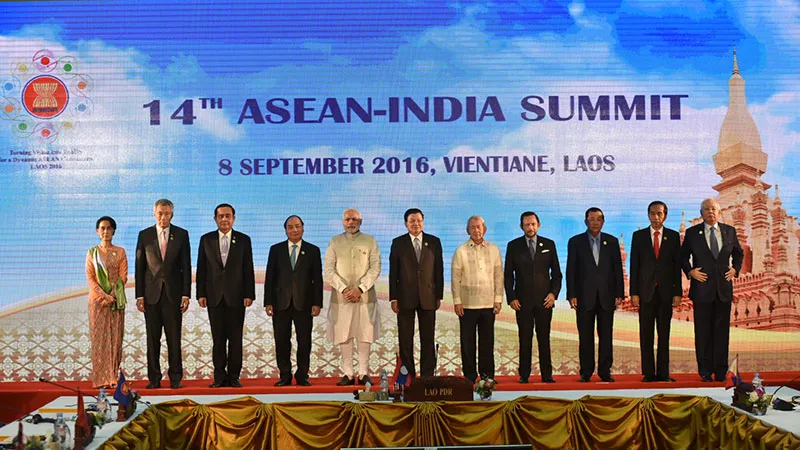-
CENTRES
Progammes & Centres
Location
A month has elapsed since the aborted coup attempt in Turkey on the night of July 15.

A month has elapsed since the aborted coup attempt in Turkey on the night of July 15. This short period has witnessed radical changes in alignments pursued by Turkey, both domestically and regionally as well as globally.
The most dramatic indication of rapidly moving geo-strategic equations in the region is the decision by Turkish President Recep Tayyip Erdoğan to choose Russia as the first country that he would visit after the failed coup attempt.
Erdoğan travelled to Saint Petersburg, Russia for a bilateral meeting with Putin on August 9, 2016. The tour was aimed at restoring bilateral relations in trade, economy, science etc. Putin announced at the ensuing joint press conference that the two sides had decided to bring their relations to pre-crisis levels and to draft a mid-term program of economic, technical and scientific cooperation for the next three years. Putin said that trade and economic sanctions imposed on Turkey in the wake of downing of the Russian plane will be progressively phased out. Both leaders recognised their differences on dealing with the Syria problem, but agreed to work together and coordinate their positions.
Such breakneck rapprochement between Russia and Turkey whose relations have been in the doghouse since November 2015, were quite inconceivable just a month ago. The last seven weeks have seen an incredible transformation in bilateral ties which have caught international observers and analysts off-guard.
Shooting down of the SU-24 Russian jet fighter by Turkey on November 24 last year has defined relations between the two countries over the last ten months. This incident saw bilateral ties descending to their lowest ebb in recent memory with Putin warning Turkey of ''serious consequences'' and terming Turkey as an "accomplice of terrorists." USA, EU and NATO however supported Turkey's action and maintained that Turkey had the right to defend itself from foreign incursion.
Soon after this incident, both countries were keen to normalise relations quickly for their own reasons.
The first tentative move occurred at the end of June 2016, immediately after the devastating terror attack at Kemal Ataturk Airport in Istanbul which killed at least 41 people. Erdoğan sent a formal apology to Putin, both by letter as well as over telephone, and agreed to pay compensation to the family of the killed pilot.
Within a few weeks after that, the failed coup provided the ideal opportunity for Erdoğan to reach out to Russia for an understanding on economic, commercial and strategic issues.
Charter flights and tourist groups from Russia to Turkey were banned after shooting down of the airplane in November 2015. Turkey was feeling crippled by the absence of Russian tourists who are a major consumer of Turkish services. In 2014, 3.3 million Russian tourists travelled to Turkey, providing an important source of revenue for the latter. Official figures reveal a 92% fall in Russian visitors to Turkey in the first half of 2016. Opening up of the Turkish tourist market once again to Russia would be a big boon for the former as its tourist industry has been bludgeoned by a string of terrorist attacks across the country.
Russia had also stopped import of most consumer goods, food articles and agricultural products from Turkey. In the first four months of this year, bilateral trade plummeted to $4.8 billion, 45% down compared with the same period in 2015. Remittances by Turkish workers in Russia also dried up as a result of tension in bilateral ties.
Turkish real construction companies were also under heavy pressure as they were shut out of the lucrative Russian market. Erdoğan was feeling politically isolated because of growing differences with US, NATO and EU allies on his Syria policy. Russia was keen to mend ties both for geo-strategic as well as economic reasons. It has been under stifling sanctions from the West on account of the Ukrainian crisis since 2014. The aircraft shooting incident put two major joint energy projects on hold — the Turk Stream gas pipeline across the Black Sea and the Akkuyu nuclear plant being built by Russia's Rosatom in Turkey. Russia was also keen to capitalise on Turkey's deteriorating ties with West in wake of the coup attempt. After the coup, Putin expressed support for Erdoğan. Unlike western powers, he did not criticise Erdoğan's crackdown on political opponents and purge of alleged "plotters" in state institutions. However, in spite of the swift moves to restore dialogue and review the sanctions, normalisation of ties is likely to take some time. Courtesy: US Joint Chiefs of Staff
Courtesy: US Joint Chiefs of StaffTurkey has been pressurising its neighbours to clamp down on Gulen inspired or run institutions functioning in those countries. Barring Azerbaijan which has multi-faceted ties with Ankara, other countries including in Central Asia have politely but firmly turned down the Turkish demarche. Turkish government has also apparently urged India to shut the operations of and ban all educational and social institutions in India which have been promoted by the Gulenist Movement. India should consider this request based on merits of the case. These institutions appear to be actively promoting communal, social and inter-faith harmony as well as inclusive education in the country. India should hence firmly inform the Turkish government that such institutions promote peace and security in the country and the country does not feel any threat of violence or disturbance due to their presence. The next few months are likely to witness rapid transformation in inter-regional and intra-regional equations in foreign relations between Turkey, Syria, Iran, Russia and Israel, as well as with USA, EU and NATO.
The author is a former Indian ambassador to Kazakhstan, Sweden and Latvia.
The views expressed above belong to the author(s). ORF research and analyses now available on Telegram! Click here to access our curated content — blogs, longforms and interviews.